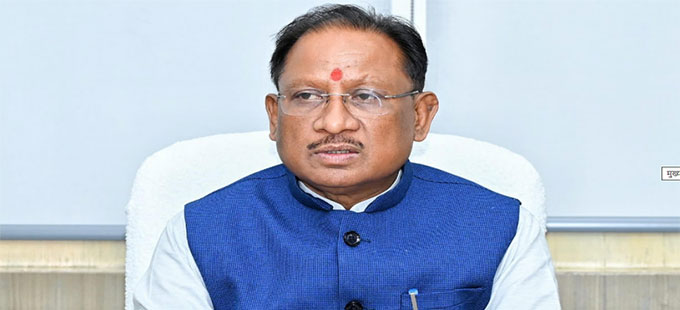Transforming grassroots governance for a rural renaissance
Transforming grassroots governance for a rural renaissance

Rural socioeconomic growth and welfare have been on the Indian government’s agenda since Independence. Numerous policies and programmes have been initiated. Success is visible in many health and educational institutions as well as agriculture productivity, rural development and many citizen welfare measures.
But we are also familiar with abysmal learning achievement levels in government schools, sub-standard healthcare and disappointing outcomes of development initiatives. Though much has been achieved, crippling failures have blocked a true rural renaissance.
These failures are embedded in the style of grassroots governance that exists today – the ‘field administration’ responsible for implementation. That includes frontline organisations and personnel such as schools, police stations and patwaris, as well as district and block-level organisations that manage them. While this all provides a range of services, critical fault lines in the structure, in human resources and ways of working limit the impact.
The structure of field administration constrains its capacity to respond to contextual needs and take coordinated action. With the exception of very few states, local governments or panchayats are disempowered, lacking funds and decision-making powers to identify and address contextual needs. Instead, 30 to 40 departments have separate field offices that implement their own rigid programmes and provide services, and function fairly autonomously.
As the number of departmental organisations is large, each has very limited manpower. Yet, multiple skills, such as technical knowledge, planning and management, community mobilization and education, financial knowledge and at times legal expertise to implement programmes and provide service. But a large number of organizations cannot provide all these skills and the quality of service delivery suffers.
Further, many grassroots organisations have very inadequate staff. For example, in Anganwadi centres, one Anganwadi worker and a helper address malnourishment and health of children under the age of six and mothers, provide preschool education, and conduct activities related to adolescent girls, domestic violence etc. Not surprisingly, studies show that preschool education is often neglected in Anganwadi centres. This problem is exacerbated by a large number of vacancies in several states.
Though field-level employees are usually educationally well-qualified, their training is given little attention. For instance, police constables are trained casually, which leads to shoddy law enforcement. In addition, there is a perverse incentive structure for employees. Many frontline workers such as teachers, Anganwadi workers etc., are contractual employees with very low salaries and no promotion avenues. Such workers have formed associations to agitate and litigate for better service conditions, and at times, have succeeded. .
These contractual employees make gains with skilful agitation and litigation, not hard work. For regular field employees too, there is little incentive to work hard, as promotions are slow, while good postings are gained by pleasing political patrons. Yet, politically connected people often get away with doing little work and cannot be disciplined. Moreover, officials are transferred often, sometimes for refusing to carry out illegitimate orders, which dents motivation further, while short tenures affect work adversely.
The working style of employees is framed by extreme centralisation at the state level. Field officials work within the parameters of centralised programmes and directions and cannot address people’s needs when they fall outside these. Targets set centrally take priority over community needs. Sometimes the outcome is shoddy work, such as the declaration of areas as ‘open defecation free’ on paper, rather than in practice. There are numerous reviews and reporting requirements from the state level that time away from meaningful activities. Further, state governments initiate many ‘campaigns’ on various issues in quick succession, so that systematic work becomes difficult and long-term tasks are neglected.
The capacity of field organisations to plan, strategise and solve problems is limited because of extremely hierarchical functioning, whereby junior officials cannot question their seniors. Further, generally, field officials do not take support from local NGOs and resource agencies or learn from them, because they see their role as implementing pre-decided activities and following orders. Rampant rent-seeking exacerbates these problems. Officials collude with lawbreakers and pilfer funds, going against the mandates of their organstions rather than fulfilling them.
Clearly, there is a need to reform grassroots governance. Fundamentally, field administration needs to be conceptualised not as an executor of orders, but as a site for analysis and strategy formulation to address citizens’ needs. For this, local governments need to be empowered. The fragmented structure can be addressed by fusing the numerous departmental agencies into five or so organisations at various levels.
With fewer organisations, each can be provided varied expertise needed. The recruitment of poorly paid contractual employees needs to stop, patronage-based postings of regular employees eliminated, and promotion avenues increased substantially. Guidelines should be developed for a more productive working style that includes situational analysis, consultation, weighing pros and cons, taking feedback etc.
Eliminating rent-seeking is a challenge, as it is widespread across all levels of government. Stopping patronage-based postings would help, as would strengthening accountability to citizens. The transformation of grassroots governance is a prerequisite for a rural renaissance.
The author is a former additional secretary in the Government of India and senior visiting fellow at the Indian Council for Research on International Economic Relations (ICRIER) and ex-IAS officer. She is the chairperson of Transform Rural India. She will be speaking about ‘The Citizen View: Experiencing Governance’ at the upcoming India Rural Colloquy in Delhi on August 8, 2023. Views expressed in the above piece are personal and solely that of the author. They do not necessarily reflect Firstpost’s views.






















